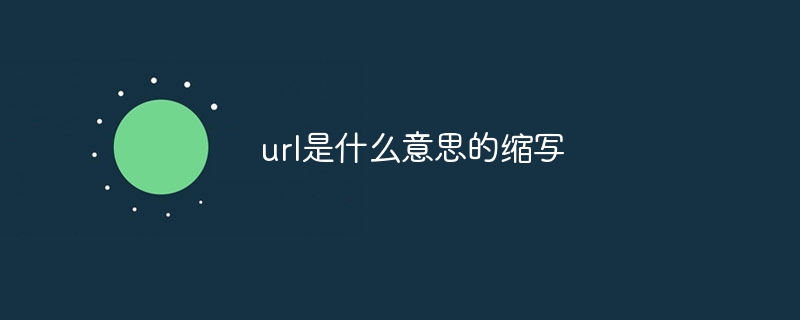What does url mean?
A Uniform Resource Locator (URL) is a text string that uniquely identifies an Internet resource. A URL contains the following parts: protocol, server address, port number, path, query string, and fragment identifier. They are used to identify, access, link, deliver information, and track and analyze Internet resources.

Meaning of URL
URL (Uniform Resource Locator) is the abbreviation of Uniform Resource Locator. It is a text string that identifies a specific resource on the Internet.
How to understand URL
URL usually consists of the following parts:
- Protocol: Specified for accessing resources communication protocol, such as HTTP, HTTPS, or FTP.
- Server address: Specify the domain name or IP address of the computer where the resource is located.
- Port number: Optional, specify the specific port used to connect to the server.
- Path: Specify the specific location of the resource on the server.
- Query string: Optional, used to send additional parameters or filters to the server.
- Fragment identifier: Optional, used to specify a specific part or location of a resource.
Purposes of URLs
URLs play a vital role on the Internet:
- Identifying resources :URL uniquely identifies every resource on the Internet, such as web pages, images, videos, etc.
- Accessing resources: Web browsers and applications use URLs to find and access these resources.
- Link resources: URLs are used to establish hyperlinks between different web pages or documents, allowing users to easily navigate the Internet.
- Passing information: Query strings can be used to pass additional information or filters to the server, customize results, or perform specific actions.
- Tracking and Analytics: URLs can be used to track user activity and analyze website traffic.
The above is the detailed content of What does url mean?. For more information, please follow other related articles on the PHP Chinese website!

Hot AI Tools

Undresser.AI Undress
AI-powered app for creating realistic nude photos

AI Clothes Remover
Online AI tool for removing clothes from photos.

Undress AI Tool
Undress images for free

Clothoff.io
AI clothes remover

AI Hentai Generator
Generate AI Hentai for free.

Hot Article

Hot Tools

Notepad++7.3.1
Easy-to-use and free code editor

SublimeText3 Chinese version
Chinese version, very easy to use

Zend Studio 13.0.1
Powerful PHP integrated development environment

Dreamweaver CS6
Visual web development tools

SublimeText3 Mac version
God-level code editing software (SublimeText3)

Hot Topics
 1386
1386
 52
52


